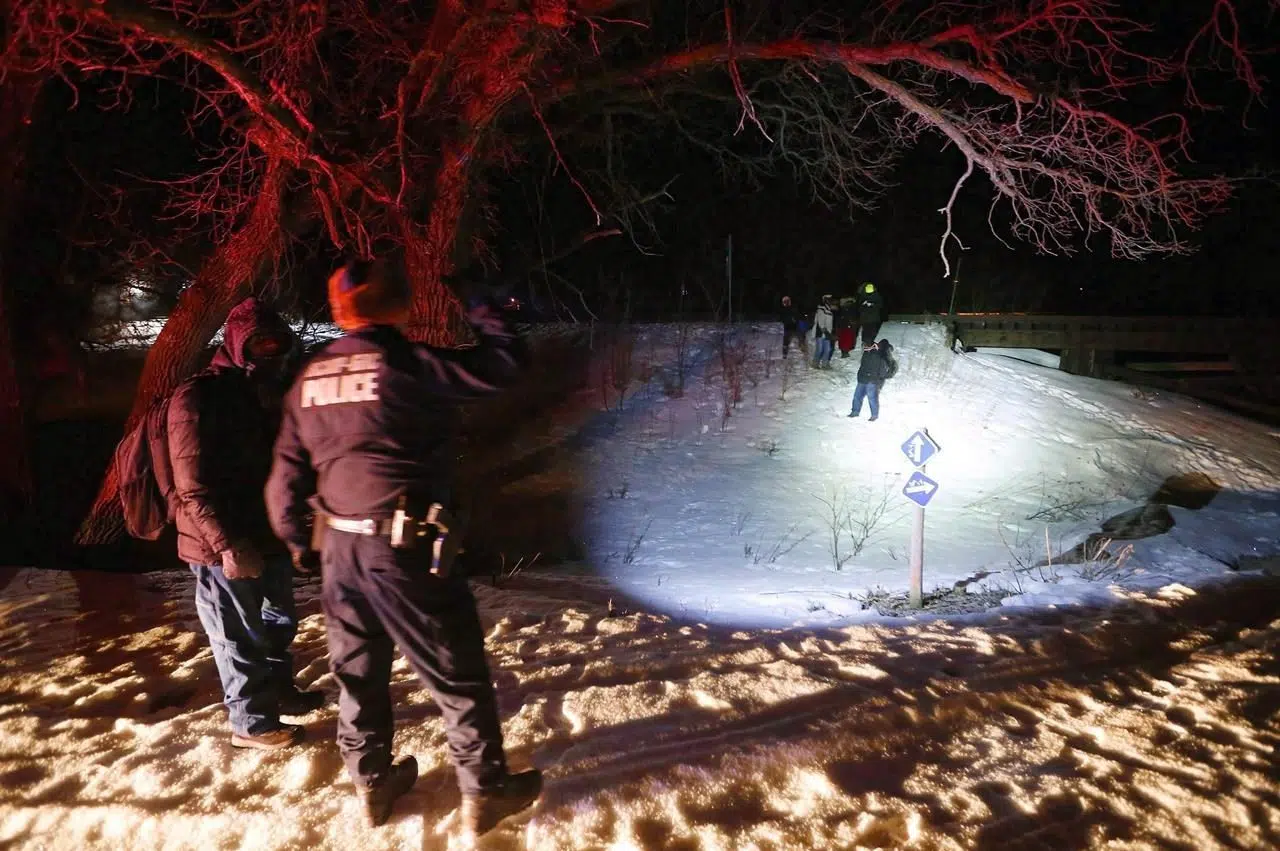OTTAWA — “We have made sure that every single person crossing our borders, whether legally or illegally, gets processed according to all our rules. We have seen over the past years all around the world an increase in migration and in asylum seekers happening everywhere, and Canada is not immune to that. However, we have a strong immigration system that continues to apply all its steps to everyone crossing the border.” — Prime Minister Justin Trudeau in question period, May 7, 2019.
—
The influx of asylum seekers to Canada has become a sustained political headache for the Liberals over the last two years and is likely to be the subject of divisive debates in the upcoming fall federal election.
The most heated rhetoric tends to revolve around tens of thousands of “irregular migrants” who have crossed into Canada through unofficial paths along the Canada-U.S. border since early 2017.
The Conservatives have been accusing the Trudeau government of not being in control of the country’s immigration system and have been using the number of migrants — whom they typically call “illegal,” not “irregular” — to highlight those concerns.
Trudeau and immigration officials continue to insist the system is just fine and that Conservatives are merely stoking fears for partisan gain.
The prime minister responded to one recent question from deputy Conservative leader Lisa Raitt by saying “every single person crossing our borders, whether legally or illegally, gets processed according to all our rules.”
Is this statement true?
Spoiler alert: The Canadian Press Baloney Meter is a dispassionate examination of political statements culminating in a ranking of accuracy on a scale of “no baloney” to “full of baloney” (complete methodology below).
This one earns a rating of “Full of baloney.”
Here’s why.
THE FACTS
Anyone wishing to make an asylum claim in Canada faces a number of screenings by three different federal agencies.
The Immigration Department and Canada Border Services Agency (CBSA) first conduct an eligibility assessment, which involves biometric screening (fingerprints and photos) and biographic checks as well as a security check for anyone over 18 years of age. This determines whether the person is eligible to make a refugee claim. Factors that rule out eligibility include whether the person has committed a serious crime, made a previous claim in Canada or received protection in another country.
If, after those checks, the person is deemed eligible for refugee protection, the Immigration Department or CBSA then refers the claim to the Immigration and Refugee Board (IRB) — an arm’s-length tribunal that decides refugee cases and appeals.
Once a claim is referred to the IRB, it’s reviewed for security, credibility and for possible grounds for exclusion from Canada’s asylum system.
THE AUDITOR GENERAL
Federal auditor general Sylvain Ricard recently probed whether all three government agencies involved in refugee determinations have been consistently processing asylum claims in an efficient and timely manner.
The audit found Canada’s refugee system has a backlog of asylum claims that is worse now than it has ever been, caused in part by systemic inefficiencies.
Ricard’s office also zeroed in on whether biometric checks for criminality or identity were completed for a sample of 82,503 claimants.
His office found that the CBSA had no quality-assurance program to ensure all the proper screening procedures had been completed. For example, the audit found some files contained errors in electronic documentation. It also flagged 400 claims where biometric checks for criminality or identity were not completed, as required. In some of these cases fingerprints were simply not taken and in others there were system errors that occurred when information was transmitted.
“Although these cases represent 0.5 per cent of all claimants for whom criminality or identity checks were required, the checks are important for public safety and the integrity of the refugee determination system,” the auditor’s report says. “Neither organization systematically tracked whether a criminal records check was always completed because of poor data quality.”
Public Safety Minister Ralph Goodale responded by saying the system has “layers of protection.” When the auditor general found those 400 cases with missing biometrics, the CBSA immediately checked those files and in every case, proper criminal screening was done to ensure no bad actors inadvertently slipped through the system, Goodale told reporters May 7.
“With respect to biometrics, (CBSA officials) were able to identify that in 0.2 per cent of cases, that part of the screening process was not completed properly. I guess you could look at it the other way around and say 99.8 per cent of the cases, it was properly completed, but in 0.2 per cent, they acknowledge an error and they have taken steps to make sure, by way of proper protocol, that doesn’t happen again,” Goodale said.
THE VERDICT
Trudeau clearly and matter-of-factly stated that “every single person crossing our borders, whether legally or illegally, gets processed according to all our rules.” He made this statement on the same day the auditor general’s report was published, describing the 400 cases where biometric screenings were not completed as well as other gaps in information collected or shared among government agencies about asylum seekers.
The audit report did find that in most cases, proper procedures were followed, but it did flag areas where some people did not get screened according to all the rules.
For that reason, Trudeau’s statement in the House of Commons earns a rating of “Full of baloney.”
METHODOLOGY
The Baloney Meter is a project of The Canadian Press that examines the level of accuracy in statements made by politicians. Each claim is researched and assigned a rating based on the following scale:
No baloney — the statement is completely accurate
A little baloney — the statement is mostly accurate but more information is required
Some baloney — the statement is partly accurate but important details are missing
A lot of baloney — the statement is mostly inaccurate but contains elements of truth
Full of baloney — the statement is completely inaccurate
Teresa Wright, The Canadian Press







